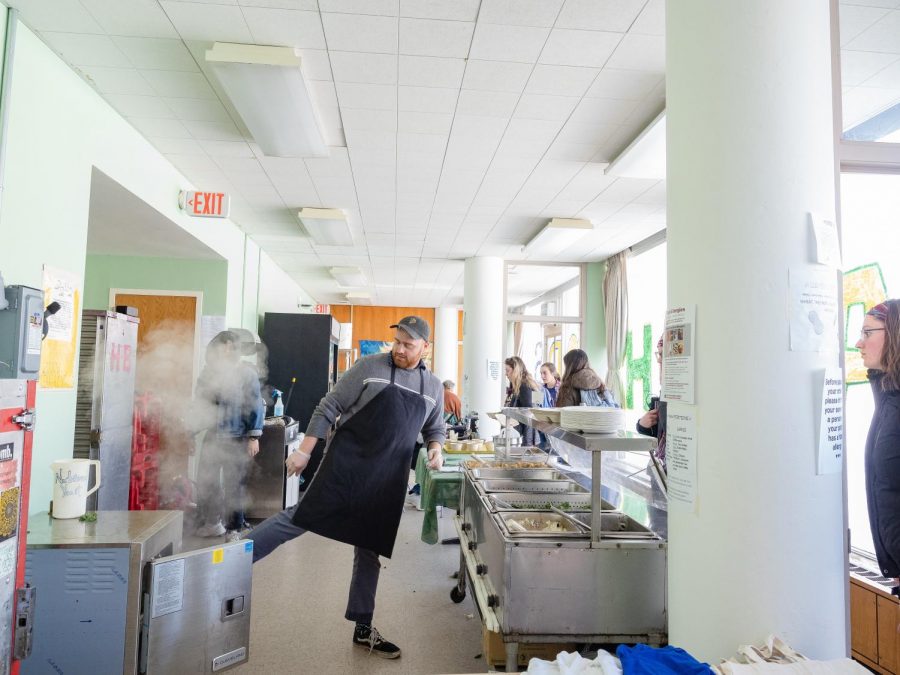
Union representatives that were involved in a 2015 effort to secure promised pay raises from the University of Massachusetts are now criticizing the UMass system for issuing pay hikes to top administration members.
In December, the Boston Herald reported that multiple members of UMass administration received pay raises in a year where student fees rose and 6,500 union workers negotiated to receive retroactive pay raises that the University claimed it lacked the proper funds to implement.
According to the Herald, some administrators received pay raises of nearly $20,000. The Herald reported that these raises included a $19,000 increase for UMass Executive Vice President James Julian Jr., who now earns $371,384 annually. Vice President of Communications Robert Connolly received a raise to that increased his salary to $211,569 per year.
In response to the criticism, Ann Scales, director of communication for the UMass system, stated that the pay increases were in line with members of the same industry and necessary to attract the best individuals to UMass.
“UMass has an established practice of setting compensation levels similar to those found at peer institutions,” Scales said.
The administration said that the raises for its top officials are on track with general raises for all of its employees, according to a statement released by the UMass Communications Department in response to the criticism. UMass system president Marty Meehan entered office in the middle of a negotiation between nearly 6,500 employees and the University over pay raises that employees had not received. In September 2015, Meehan announced his approval of $10.9 million for retroactive and future pay raises negotiated between union members and the state.
Donna Johnson, the president of the University Staff Association, which represents nearly 1,000 workers across the UMass system, called the pay raises to top officials “frustrating.”
“When I hear that this official is now receiving thousands and this one more thousands, it fires me up. We had to fight months to get raises that were really just adjustments to the cost of living while top officials get raises like it was nothing,” Johnson said.
Throughout 2015, the University Staff Association, the Massachusetts Teacher’s Association, the Graduate Employment Office union and others were engaged with the University to acquire pay raises that had been frozen due to an apparent lack of funding, Johnson said.
University representatives claimed throughout the negotiations that they could not deliver the pay raises because the state legislature failed to allocate the required $10.9 million. However, union representatives contended that the funding was built into the existing budget, according to statements released by unions involved in the bargaining process.
While the negotiations were still in progress in 2015, Randy Phillis, the president of the Massachusetts Society of Professors, criticized the state legislature and the university in a publicly released statement.
“The University honors all of its contracts with vendors; why do they see its faculty and staff as its lowest priority?” Phillis said.
Phillis added that the lack of urgency indicated that the struggles of the University’s employees were being ignored, according to the statement. In statements released months later, Meehan said he agreed to allocate $10.9 million to fund the pay raises and retroactive payments based on the belief that the state legislature would increase funding to UMass to compensate the system for the expenditure dedicated to the raises.
However, the legislature did not appropriate additional funding and Meehan has publicly announced that budget cuts across the system, including $5 million at the Amherst campus, must take place in 2016.
In a statement, Meehan expressed frustration over what he believed was a confirmed agreement to increase funding to the UMass system to alleviate the burden of cost caused by the unforeseen costs of the contract negotiations. Meehan added that the state legislature could have prevented a rise in tuition if they had allocated additional money in a supplemental budget. The additional funding was not granted and the tuition hikes remain in place.
The decision to raise tuition before the announcement of the funding of the pay raises presents the union workers who lobbied for raises in a negative light, according to Johnson.
“What I fear are the students and families who now have to pay more for their education are going to turn to the unions and point the finger at us as the cause for the tuition increases,” Johnson said.
Johnson said she understands the need to attract competent employees and that the officials who received these raises were entitled to compensation based on industry standards. However, the fact that officials received their raises without issue sends a negative message to the lower-tier employees throughout UMass, she said.
Johnson added that the ongoing conversation over tuition increases and unforeseen costs over union wages is disingenuous. According to Johnson and other union representatives, the pay increases were promised and should not be represented as the cause of the current budgetary turmoil.
“It indicates that we’re of lesser value, which makes no sense. We’re the life blood of this school. We’re the ones who interact directly with students and go beyond our job requirements to help in any way,” Johnson said.
“We do it because we love the kids, and all that we ask for is to be treated with the same respect. I can’t tell you how frustrating it is to have to beg for something that was already promised to you then to see someone get a $20,000 increase at the snap of a finger,” she said.
Brendan Deady can be reached at [email protected]


















Frustrated • Jan 21, 2016 at 12:36 pm
“UMass has an established practice of setting compensation levels similar to those found at peer institutions,” Scales said.
Hey UMass how about trying to work with the state to up date job descriptions that are dated back to 1987. They are so worried about higher ups getting compensated at similar levels to those at peer institutions while people are working under job descriptions listing shorthand, typewriters & adding machines to name a few.